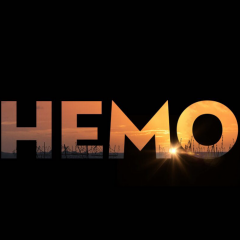How Esports Organizations Monetize Their Fanbase in 2025
The Maturing Esports Ecosystem: From Sole Reliance on Sponsorships to the Growing Importance of Fan Engagement for Revenue Generation
The roar of the crowd, the clash of digital titans, and the global viewership figures leave no doubt: esports has firmly cemented its place in the entertainment arena. However, as the industry continues its rapid ascent toward 2025, the strategies underpinning its financial sustainability are undergoing a significant evolution. Gone are the days when esports organizations could solely rely on the largesse of sponsorships to fuel their operations and ambitions. The ecosystem is maturing, demanding more sophisticated and diversified revenue streams. At the heart of this transformation lies the fanbase – a passionate and increasingly influential community that holds the key to unlocking sustainable growth. This article delves into the multifaceted ways in which esports organizations are strategically monetizing their fanbase in 2025, exploring innovative approaches that move beyond traditional models and embrace the immense potential of direct fan engagement as a primary driver of revenue generation.
Core Monetization Pillars Centered Around the Fan
Merchandise and Apparel: Beyond the Jersey
The traditional jersey, emblazoned with team logos and player names, remains a cornerstone of esports merchandise. However, in the dynamic market of 2025, smart organizations are recognizing the immense potential to expand their offerings far beyond this staple. Leveraging their unique brand identities, they are curating diverse product lines that resonate with various segments of their fanbase. Think limited‑edition collaborations with artists and designers, lifestyle apparel that seamlessly blends gaming culture with everyday wear, and even specialized equipment co‑branded with performance‑focused manufacturers.
Furthermore, the digital realm is opening up exciting new avenues. Digital merchandise, including in‑game cosmetic items and unique NFTs that signify fan ownership and exclusivity, are gaining traction, offering both revenue streams and deeper connections with virtual identities. The most forward‑thinking organizations are even exploring innovative ways to bridge the physical and digital worlds, perhaps offering exclusive in‑game content or experiences that are unlocked by purchasing physical merchandise, creating a holistic and engaging fan experience.
Content and Media: Engaging Fans and Driving Revenue
In 2025, content and media have transcended their role as mere promotional tools for esports organizations; they have become vital engines for direct revenue generation, deeply intertwined with fan engagement. Organizations are moving beyond simply broadcasting matches to curating exclusive, behind‑the‑scenes content that offers fans a more intimate connection with their favorite teams and players. Premium subscription models are flourishing, granting access to ad‑free streams, exclusive interviews, strategic breakdowns, and early access to announcements.
Interactive content formats, such as live Q&A sessions, polls that influence team decisions, and fan‑voted content series, not only foster a sense of community but also present opportunities for monetization through tipping and premium access. Platforms like Twitch and YouTube remain crucial, but organizations are also strategically leveraging emerging social media channels with tailored content strategies and exploring innovative monetization features offered by these platforms, including channel memberships and integrated e‑commerce. Furthermore, savvy organizations are recognizing the power of branded content and collaborations with gaming influencers, creating engaging narratives that resonate with their audience while opening up new revenue streams through sponsored segments and product placements.
Direct Fan Contributions: Fueling Growth
Beyond indirect support through viewership and merchandise purchases, 2025 sees direct fan contributions emerging as a significant and increasingly sophisticated revenue stream for esports organizations. Fan membership programs have evolved beyond simple loyalty schemes, offering tiered benefits that provide tangible value and foster a deeper sense of belonging. These programs can include exclusive access to online forums, personalized digital badges, priority access to ticket sales, and even opportunities to interact directly with players in virtual meet‑and‑greets or private online events.
Furthermore, organizations are creatively leveraging crowdfunding platforms and exploring innovative fan investment opportunities, allowing their community to directly contribute to specific projects, team expansions, or content initiatives in exchange for unique rewards or even a stake in future success. By empowering fans to directly fuel their growth, organizations not only unlock crucial capital but also cultivate a stronger sense of ownership and investment within their community, forging a more resilient and engaged fanbase.
Digital Assets and In‑Game Integrations: Branded In‑Game Items and Cosmetics
The digital battlegrounds of 2025 offer fertile ground for innovative monetization through in‑game integrations. Esports organizations are no longer confined to the periphery of the games their teams compete in; instead, they are strategically collaborating with game developers to introduce branded in‑game items and cosmetics. These digital assets, ranging from team‑themed character skins and weapon wraps to unique emotes and profile customizations, provide fans with a tangible way to showcase their allegiance within the virtual worlds they inhabit.
This not only generates direct revenue through player purchases but also serves as organic marketing, subtly broadcasting team brands to a wider gaming audience. The appeal lies in the inherent desire for personalization and self‑expression within games, allowing fans to visibly support their favorite teams while enhancing their own gaming experience. As metaverses and virtual social spaces continue to evolve, the potential for even more immersive and interactive branded digital assets within these environments will undoubtedly unlock further monetization opportunities for esports organizations.
Case Studies: Successful Fanbase Monetization in 2025
Nova Legion
Nova Legion, a fictional European multi‑game organization, launched a tiered NFT program that goes beyond simple digital art. Their "Founder's Token" not only grants holders exclusive in‑game cosmetic items across multiple partnered titles but also provides voting rights on minor organizational decisions, such as fan‑voted map selections for show matches and the design of limited‑edition merchandise. This blend of digital utility and community involvement has fostered exceptional fan loyalty and significant revenue generation through both initial sales and secondary market activity.
Celestial Gaming
Celestial Gaming, a prominent North American League of Legends organization, implemented a dynamic "Fan Journey" subscription model. Engagement activities—watching live streams, participating in community events, purchasing merchandise - earn loyalty points that unlock progressive tiers. Benefits include personalized video messages from players, exclusive access to post‑match analysis sessions with the coaching staff, and even the chance to compete in amateur tournaments against academy team members. This gamified system incentivizes consistent engagement and spending across multiple touchpoints.
T1 Entertainment & Sports
A powerhouse in League of Legends, T1 Entertainment & Sports leverages its superstar players and championship legacy for deep fan engagement. Beyond traditional merchandise, they created "T1 Home Ground" events - premium live viewing experiences with exclusive merchandise and fan interactions. Looking ahead, expanding the "T1 Base Camp" PC‑bang concept globally could offer branded gaming centers with exclusive content and fan events.
G2 Esports
G2 Esports excels at cultivating a lifestyle around its teams. Their merchandise strategy transcends jerseys, embracing fashionable streetwear collaborations. Future plans could include tiered membership programs offering exclusive behind‑the‑scenes content, interactive experiences, and the ability for fans to influence content creation through votes - all behind a premium paywall.
Team Liquid
Team Liquid has been proactive in building direct fan relationships through the "Liquid+" platform, which rewards engagement with points redeemable for merchandise, in‑game currency, and exclusive experiences. Further personalization based on fan data, deeper content integration, and early access benefits could elevate Liquid+ to the next level in 2025.
Conclusion: The Future of Esports Fan Monetization
Esports monetization in 2025 increasingly casts the fanbase as vital, actively engaged contributors. Reliance on singular sponsorship revenue is giving way to a diversified ecosystem fueled by direct fan interaction. The imperative is to create tangible value through exclusive content, unique goods, and personalized experiences. Emerging trends like NFTs and deeper in‑game integration offer new revenue potential and community‑building opportunities. Ultimately, thriving organizations will foster genuine connections, recognizing an engaged fanbase as the bedrock for long‑term growth and making them feel like true stakeholders. The future of esports revenue is inseparable from empowering its fans.































.thumb.jpg.3847343292418feaa82f8594eb7f98bf.jpg)














.thumb.jpg.2fef570d3c8e81dbc5a32c9a72f58025.jpg)











